15 Best WordPress Theme Frameworks Going into 2025
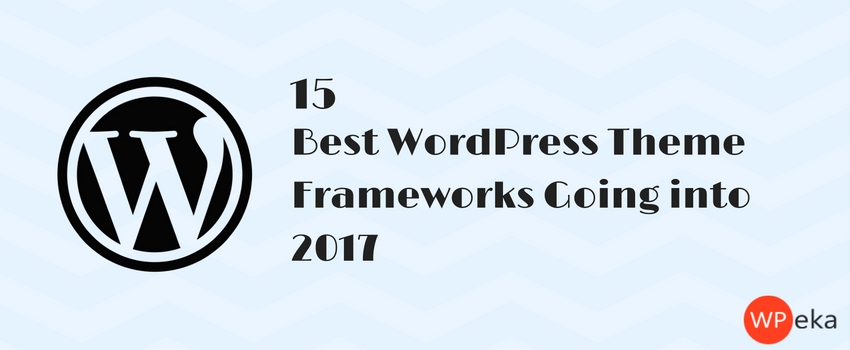
WordPress – whether you launch it off by itself, use a popular WordPress framework, or even use the WordPress multisite option — is a juggernaut of a platform.
Its scale, popularity, and its ease of use is unmatchable.
It powers over 4.5% of the entire Internet, and we won’t get anywhere near the microeconomics of the “Industry” that mushroomed around (and grew) — with Wordpress.
Small business owners, freelancers, hobbyists, medium-sized companies, developers, agencies, and also Fortune 500 companies have all opted in for WordPress today.
Just how much, you ask?
Wordpress is still by far the most popular CMS
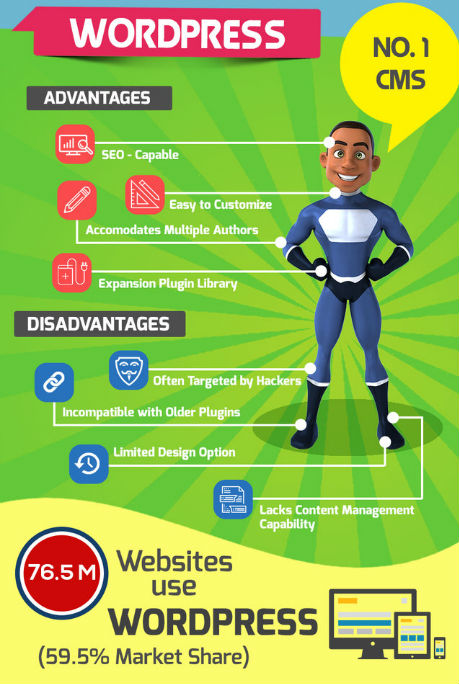
You can use Wordpress to run your small business website with 12 pages. Or you could use it for take bookings or appointments. Maybe you’d like to use Wordpress as a real estate directory. How about using WordPress as an eCommerce store, an intranet portal, a membership site, or a community? Wordpress plays out anyway you like it to be.
Wordpress can take whatever you throw at it. From 20 visitors a day to more than 2.4 billion visitors per month or more.
If you can think it up, Wordpress can deliver. The CMS platform is extremely versatile and can lower anything from a one-page site to an enormous network of multi-site installation (Read: a network of blogs).
A mix of specialist WordPress themes, WordPress Theme Frameworks third-party plugins, native WordPress plugins, and many other services can make anything happen with Wordpress today.
As such, for most developers, developing WordPress websites is bread and butter. Almost always, themes and theme frameworks make for the foundation of WordPress design. WordPress website theme works are robust, boast of well-written code, and are flexible.
If you are a developer, you’d start with great support and much of the grunt work already done for you so that you can focus on fast website development.
Let’s explore some of the most popular WordPress theme frameworks going into 2025:
Genesis
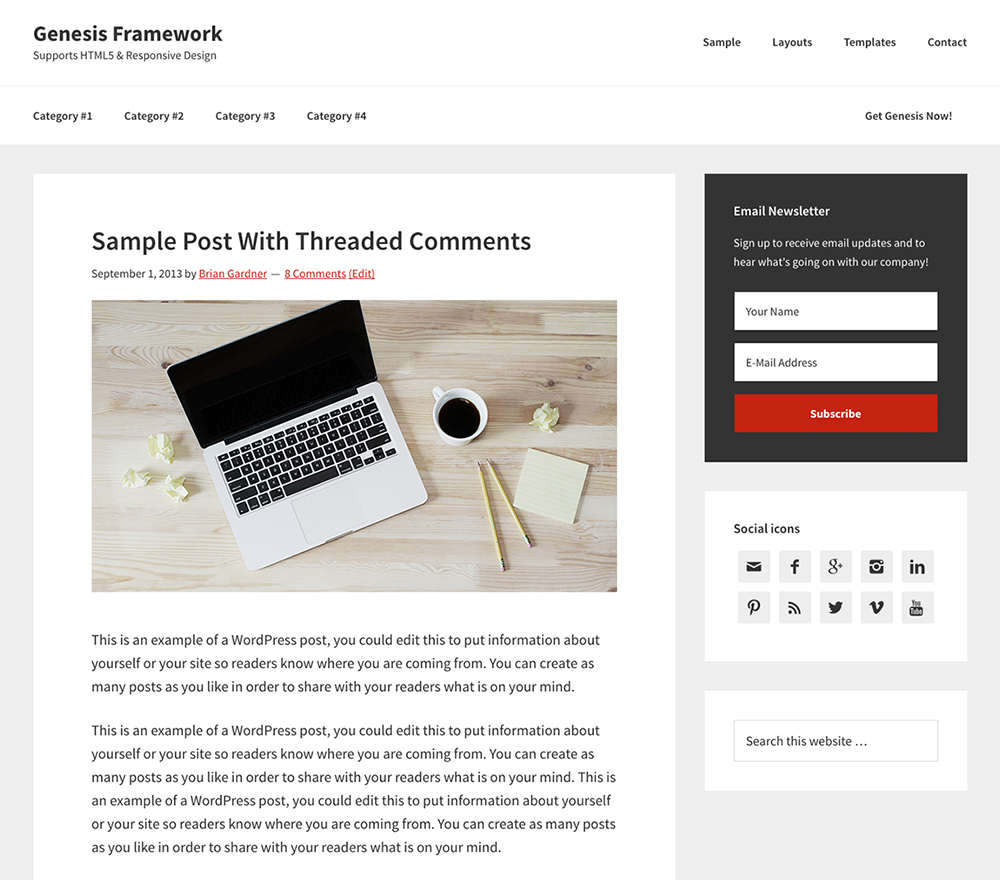
With reputation comes awesomeness. Copyblogger media has been an authority for as long as we can remember and the folks at Copyblogger media have a series of products that are built and marketed just as well as they write and influence.
The Genesis WordPress theme framework is one of the most popular, well-documented, constantly improved, and a completely robust WordPress theme framework on this list.
The already existing parent themes and child themes built on the Genesis theme framework have all proven to be minimalistic and void of all the bloat that most WordPress themes usually come with.
Just in case, Copyblogger media also has a WordPress Managed Hosting Platform called Synthesis in case you want to work with a dedicated ecosystem.
Divi
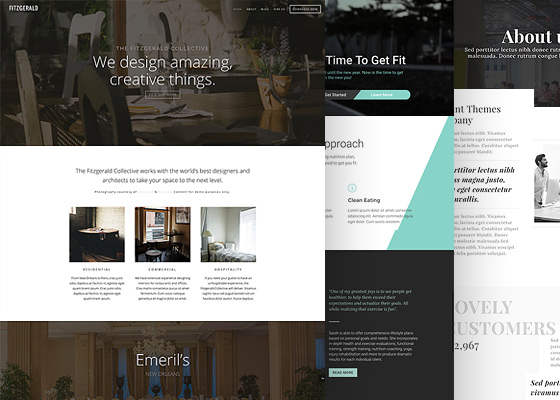
Off late, The Divi WordPress theme framework by Elegant Themes has risen in popularity mainly due to the advanced Divi builder giving developers an almost unlimited potential to develop WordPress websites exactly the way you want them.
Unlike Genesis, Divi doesn’t force themes on to you (although it’s a good thing that Genesis does).
The Divi builder does allow you to drag and drop but also lets developers access code just in case you like to get your hands dirty. The Divi builder comes with a few pre-made layouts, responsive design, a strong foundation, and practical features make it a new favorite today (going on to tomorrow).
Avada
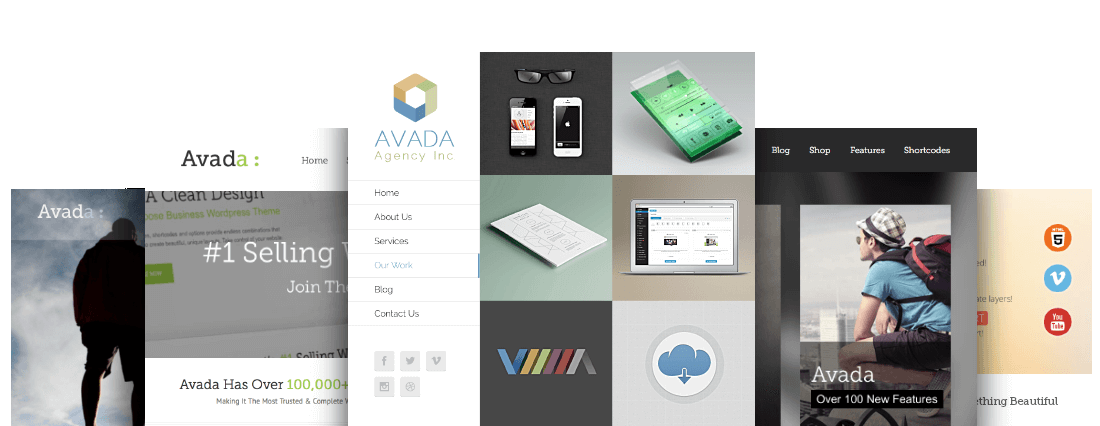
For an even more web design challenged enthusiast, Avada takes away all the hard work and it’s one of the most popular theme framework ever sold.
Avada’s fusion builder provides developers and users with an intuitive WYSIWYG page builder, unlimited design options off a powerful theme framework, tons of theme options, shortcodes, and many intuitive (also very handy) tools.
Headway

The Headway WordPress theme network has been around for a while and is popular with developers who prefer working with building blocks (or modules) that extend the functionality of the Headway Themes Framework.
Modules help provide for extra features that developers will need sometimes – such as signup forms, eCommerce, etc.
The Headway theme framework makes use of the Headway Grid, a design editor, and more. Don’t let this make you think that headway is for seasoned developers only, because it’s not.
Absolutely anyone can use it.
Canvas
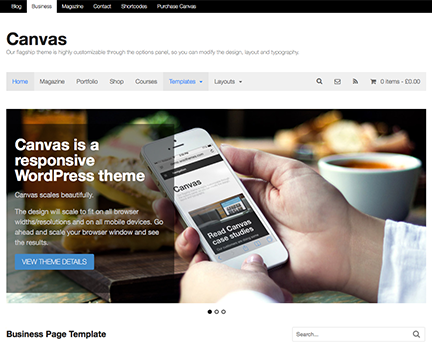
Familiar with the ultra popular WooCommerce plugin for WordPress. WooThemes – the company behind the WooCommerce plugin — also provides for a starter WordPress theme network called Canvas that you can base your WordPress themes on.
While WooThemes does have a set of starter themes for you to use, Canvas is a theme framework that can help push your design to the limit.
Canvas comes with templates, Tumblog functionality, and obviously supports WooCommerce seamlessly.
Pagelines DMS
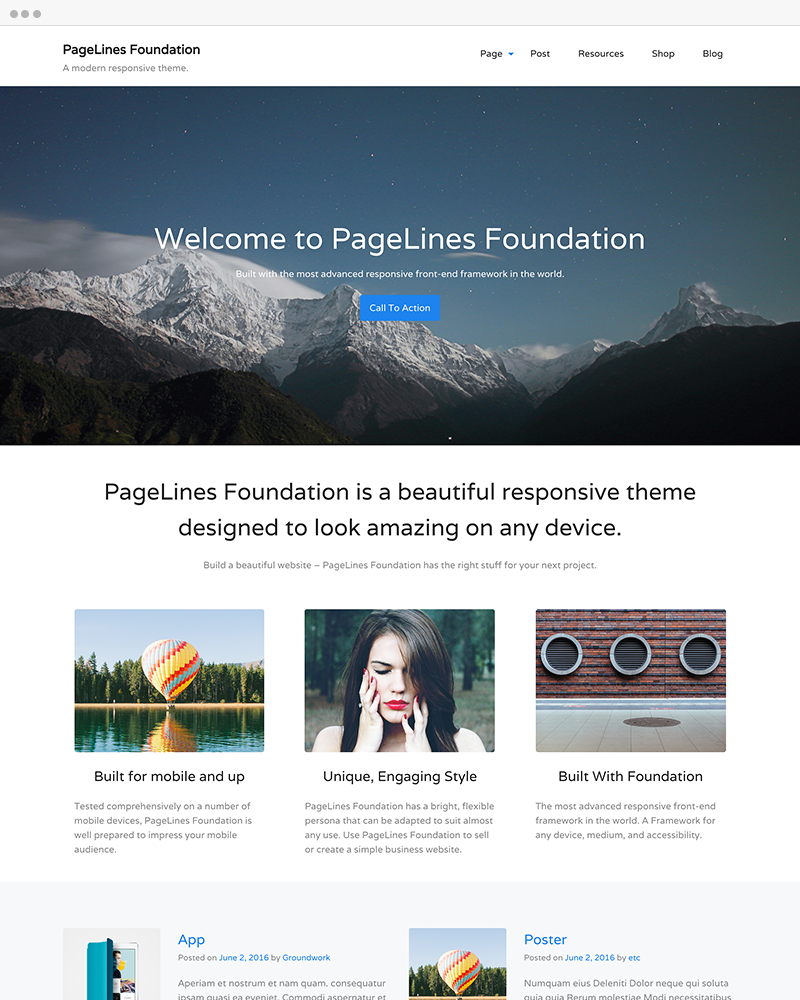
Pagelines is for the perfectionist in you. It’s called a Design Management Solution (DMS) and it gives you a drag-and-drop framework to help you build responsive and attractive Wordpress websites.
Pagelines DNS is SEO ready, features plenty of extensions, ready-made templates, and the possibility for you to build more with the drag and drop builder. If you purchase themes and extensions off the Pagelines store, you always get the support you need.
Thesis
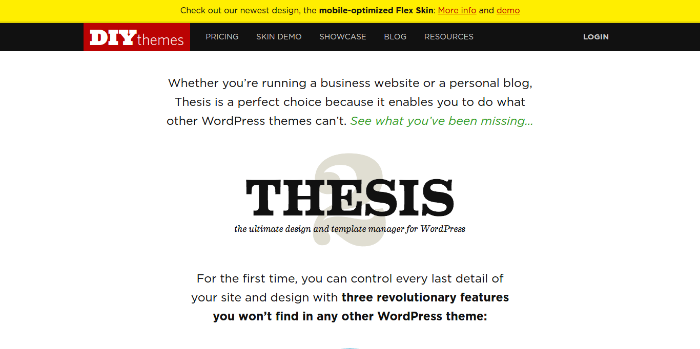
Thesis is also one of the older WordPress theme frameworks on this list and has been an elegant solution for thousands of web designers, developers, and WordPress specialists over the years.
Again, you’ll meet an easy drag-and-drop builder, theme-specific functions called “Boxes” to help you add functionality without code, various skins, themes, site tools, and is obviously as versatile as it can get.
Cherry
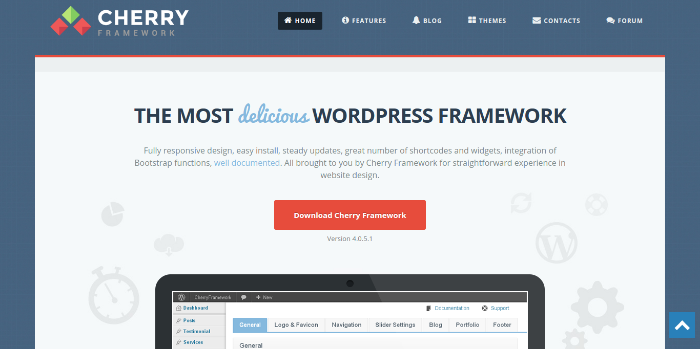
If you are aware of Bootstrap, think of Cherry as the WordPress cousin. Cherry – unlike some of the premium WordPress theme frameworks featured earlier on this list – is an open source framework to help provide web developers with a free but robust and reliable option for a worldwide community of WordPress fanatics.
Cherry 4.0 provides you with an independent module structure that you can use independently, multiple shortcodes (and also a shortcode editor), CSS minifier, multiple plugins, and also gives you the ability to work with third-party tools.
Hybrid Core
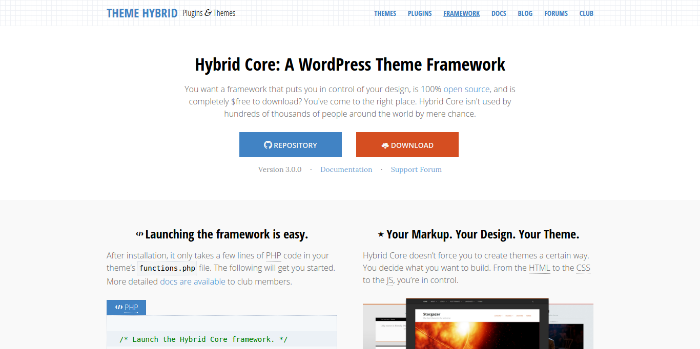
If you thought open-source would mean specialist coding knowledge, Hybrid Core WordPress theme framework tries to ease this a bit. Hybrid Core is open-source but is much easier to work with thanks to the pre-coded features, options, and compatibility with almost every other plugin you’d ever need.
But then, it’s as friendly as it gets for developers too. For instance, it features a cleaner gallery that fixes invalid HTML automatically, a breadcrumbs script, media grabber, and numbered pagination.
Gantry
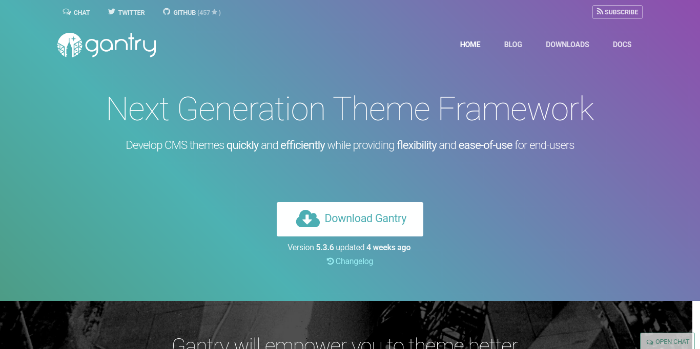
Gantry is a WordPress theme framework that’s based on a responsive CSS grid system. Built and managed by the folks at RocketTheme, it packs in all that you need to develop WordPress websites fast and easy.
For developers, it also gives the flexibility for them to get creative and deliver what clients need. A layout manager helps building by dragging & dropping elements around; a particle system gives you pre-made content blocks; a Twig temple build system; and more.
Runway
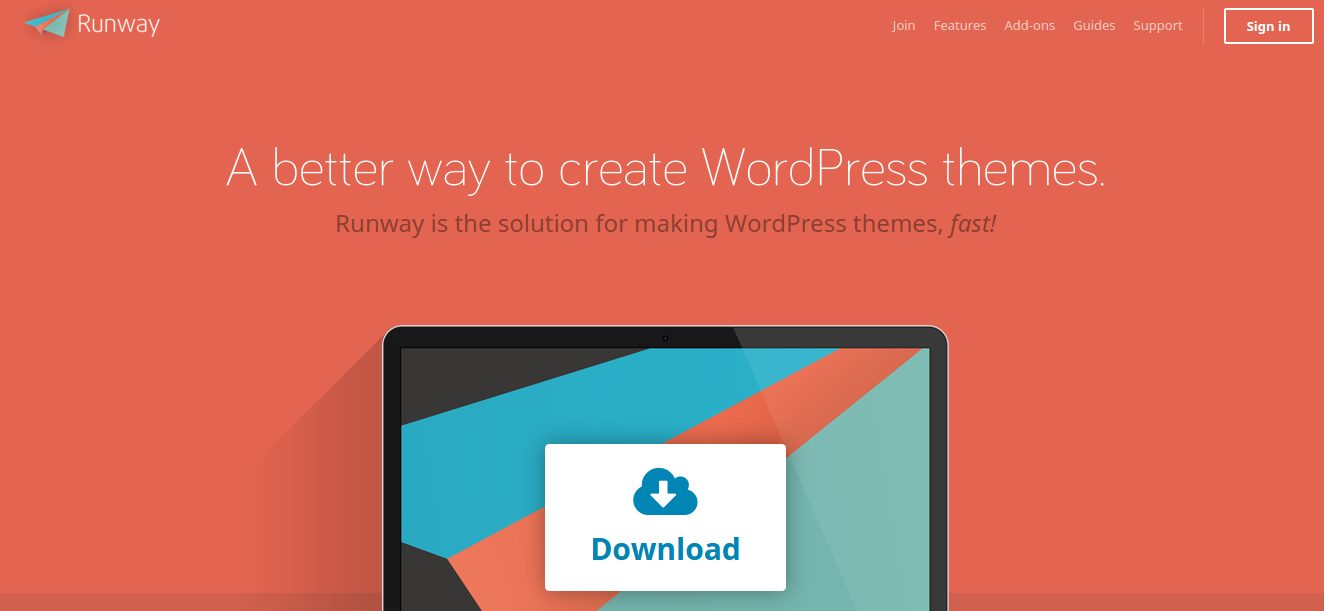
Sometimes, you don’t want to get stuck with any one WordPress theme framework. You want independence but you’d still want the best foundation to base you work off of. Runway by Parallelus gives you just that. As a developer, you can build and distribute your themes as standalone products (and independent of the framework itself).
Runway gives you powerful white label options, allows you to produce and sell themes off the network itself, and gives you everything you’d come to expect from a modern WordPress theme framework such as theme option builders, child theme generator, and one-click modular building options.
Wonderflux
Wonderflux is an open-source WordPress theme framework that features more than 100+ hooks that’ll allow you to work with (and embed) any type of content or code into your theme.
Plus, it comes with a responsive CSS layout system, powerful admin options access to extra functions with plugins, a valid and well-built code, and flexibility to change layouts.
Unyson

Unyson was built by ThemeFuse with a limitless drag-and-drop theme builder, demo content installs, and option types (20+) to help generate boxes, tabs, and more. It also provides for automated backups, breadcrumb extensions, and easy-to-implement sliders support both images and video or both.
When you build with Unyson, you can also use various other features such as forms, events, portfolio, reviews, ratings, SEO and the possible integrations with social media, and more.
Reverie By ThemeFortress
Of the many hardcore WordPress theme frameworks list above, how do you even begin to make a choice? Sometimes, reputation helps. Reverie WordPress theme framework is built by ZURB – the same organization that also built Foundation, which is a hugely popular CSS front-end framework.
Reverie, however, is a WordPress theme framework to help you build the base for a parent or a child theme. While this isn’t for the average user, it gives everything a developer needs such as HTML5 and hNews microformat, media queries, custom WordPress functions on stock WordPress foundation, and simplistic CSS.
Ultimatum
Ultimatum is a WordPress theme framework that tries to do a little more than what the normal ones already provide for you. There’s a form builder, a range of sliders, a visual composer with drag-and-drop functionality, and optional integration with WooCommerce with which it’s fully compatible with.
The visual composer helps you build pages in any way you like. You also get access to custom post types, Typography with Google fonts, a large set of icons, and the option to use Twitter Bootstrap while building themes.
Conclusion
Going into 2025, we’ll only take a few WordPress theme frameworks into consideration. Some of these foundational frameworks could lose support or the functionality could stale. Hence, the choice of the platform (WordPress) and the theme framework it’s built on will affect you at some point as a developer, WordPress expert, or even as a business owner.
Which of these premium, managed, or open-source WordPress theme frameworks do you depend on? Tell us all about it.

Leave a Reply